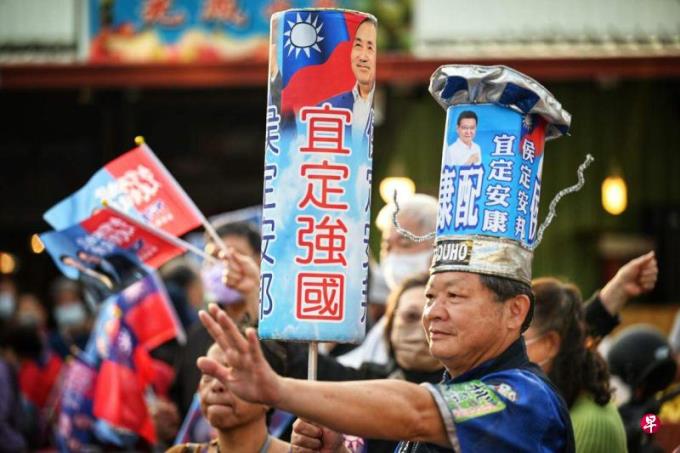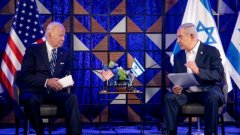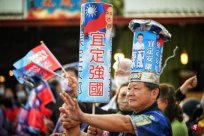
confrontation will make weak liberal China even more free, and will also damage the freedom of the United States and Taiwan.If the Kuomintang can help the three parties reduce the sense of crisis, reduce the nationalist confrontation accordingly, and regain China's sense of security, it should gradually increase domestic freedom and make the mainland and Hong Kong more attractive to Taiwan.At that time, it was more conditional to solve the Taiwan problem peacefully.
One of the important roots of cross -strait conflicts and conflicts between China and the United States are the national model of weak liberalism in mainland China. The conflict with the strong liberal model of the United States and Taiwan has adopted the form of nationalism.On the surface, the conflict between Chinese nationalism and American nationalism and Taiwan nationalism.The current Kuomintang, as a unique party that embraces liberal, Taiwan nationalism, and Chinese nationalism at the same time, can connect with the United States with liberalism, connect with Taiwan nationalism, and connect with Chinese nationalism with mainland China. ThereforeBridge between cross -strait reconciliation with China and the United States.
The conflict between the weak liberal model and the strong liberal mode
Liberalism takes the fundamental goal of ensuring and expanding the freedom of individuals in public domains such as economy, politics, society, and private fields such as personal lifestyles. To this end, a complete economic, political, and social systemThe factors of personal freedom are limited, especially the government's intervention of personal freedom.In the eyes of the West, China has now taken the road of non -liberalism or authoritarianism. In the future, if it dominates the world, it will inevitably replace liberalism worldwide worldwide, so it must curb China's authoritarian rise.
But from the perspective of the degree of personal freedom in various fields, China is not a non -liberal country without personal freedom, but in some areas (such as the economic field), in other areasFreedom (such as political fields), free liberal models with uneven development in various fields.Compared with China, the West belongs to the strong liberal model with many individual freedom in various fields.China, a weak liberalism, really needs to gradually increase the ingredients of freedom in various fields.Neither China and the West need to regard each other as a completely different kind of essentially different.
Taiwan has affinity with the West because of its strong liberal model. Together with the West, it regards mainland China as the authoritarian authority of non -liberalism.Hong Kong, a model of one country, and two systems, after implementing the "National Security Law" and "Article 23 Legislation", some temporary restrictions on freedom have been resolutely strengthened.
The Chinese mainland, which was originally a weak liberal model, became weaker in the liberal spectrum?An important reason is that Beijing has intensified internal and external challenges, which leads to a stronger sense of crisis.
The sense of crisis drives the government to use nationalist restrictions on freedom
About 10 years ago, Beijing believes that the corruption within China has flooded to the extent that the country is going to die, and the anti -corruption movement has continued to this day.feel.Later, the United States gradually increased to curb China, exacerbating Beijing's sense of crisis in external relations.In the context of rising challenges internal and external challenges, Beijing has raised Hong Kong's protest to the height that endangers national security, which is also a manifestation of its further sense of crisis.The rising sense of crisis has led to the degree of freedom of Beijing to reduce the degree of freedom of the mainland and Hong Kong, and through nationalist discussions, these sense of crisis are passed on to the people in order to solidify the society and respond to these challenges together under the circumstances of free decline.
The sense of crisis drives the government to use nationalism to sacrifice certain freedom in order to respond to challenges more effectively. This is something that governments, including Western countries, have done.In extreme cases, for example, during the war, countries will restrict the freedom of their own citizens.The difference may be that when the weak liberal China restricts the original freedom, there are fewer domestic resistance, so it can more effectively implement the restrictions on freedom.When strong liberal Western uses the sense of crisis and nationalism to restrict freedom, because of its strong liberal tradition, it is often questioned and resisted by society, so it will not be implemented so smoothly.
In the early days of the Cold War, the fear of communism caused the emergence of McCarthy. After the September 11th incident, the fear of terrorists caused quickly through the Patriot Act and the Trump administration due to the fear of globalization.The doctrine policy, the Bayeng government was worried about China's rise, promoting "de -risk" in the fields of economic, trade technology and other fields. These have limited the freedom of Americans and enterprises to varying degrees.Can be implemented.John Mills Herms, a well -known American international relations scholar, regards Trump's policy as using nationalism to destroy liberalism.
The Tsai Ing -wen government of Taiwan has also developed a sense of crisis in the face of threats from the mainland to restrict some free "Guoan Law" and other measures, and cultivate and launch Taiwan nationalism to support these policies andAs a result, there were many controversy and resistance in Taiwan.
The Kuomintang tries to become a cross -strait reconciliation and bridge between China and the United States reconciliation
The sense of crisis drives nationalism. On the one hand, nationalism exacerbates the confrontation between the country, and on the other hand, it also harms the freedom of its own people.To break this vicious circle, we must be able to understand the political forces that can be accepted and trusted in China, the three parties of China, and the United States and Taiwan to promote reconciliation.History and reality pushed the Kuomintang to this position.
The Kuomintang after the democratization of Taiwan and the renovation of Taiwan's nationalism has the characteristics of liberalism and Taiwan nationalism, and has not completely abandoned the tradition of Chinese nationalism.Although it is still in the opposition party, as the largest party of the Legislative Yuan, the local governance seat far exceeds the E -Political Party, indicating that the Kuomintang has a strong connection with Taiwanese society through liberalism and Taiwanese nationalism.
The friendly relations between the Kuomintang and the United States have begun from World War II.Even during the period of the Kuomintang's dictatorship, the United States has always regarded the Kuomintang as a member of the Western free camp.Many of the Kuomintang's political and economic elites have been educated in the United States. The democratic transformation of the Kuomintang and the United States are more in line with liberal ideology.Ma Ying -jeou, who has just visited land and realized the Xi Ma Second Association, has repeatedly advocated that mainland democracy has been a unified prerequisite, which should also meet the expectations that the United States has never said.Therefore, between the Kuomintang and the United States, through common strong liberal ideology, it can also be connected.
Relying on common Chinese nationalism, the Kuomintang is also linked to the mainland.After the Xi Ma Second Meeting, more important Kuomintangs will visit the land, including Xia Liyan, vice chairman.When Ma Ying -jeou's visit to the land, he went to the United States to participate in the "US -Japan Trilk and Two Rail Soldiers".The connection between the United States.
Mainland China and Taiwan are driven by their respective sense of crisis. When they are in a high degree of confrontation, the role of the Kuomintang will be very subtle.Its communication bridge role may help the three parties alleviate the sense of crisis and confrontation, or it may not be asked in the three parties.Not only is the DPP, but Taiwanese society may also consolidate it with the mainland as a "selling Taiwan"; the United States may suspect that it is not as good as the DPP in its own curbing the Chinese strategy;I just want to get the benefits and do not really want to unify the two factions.
But no matter how long, Taiwan and the United States must finally reconcile with mainland China.confrontationIt will make weak liberal China even more free, and will also damage the freedom of the United States and Taiwan.If the Kuomintang can help the three parties reduce the sense of crisis, reduce nationalist confrontation accordingly, and regain China's sense of security, it should gradually increase domestic freedom, and even increase the freedom of Hong Kong.Great attraction.At that time, it was more conditional to solve the Taiwan problem peacefully.
The author is a senior researcher at the East Asia Research Institute of the National University of Singapore




